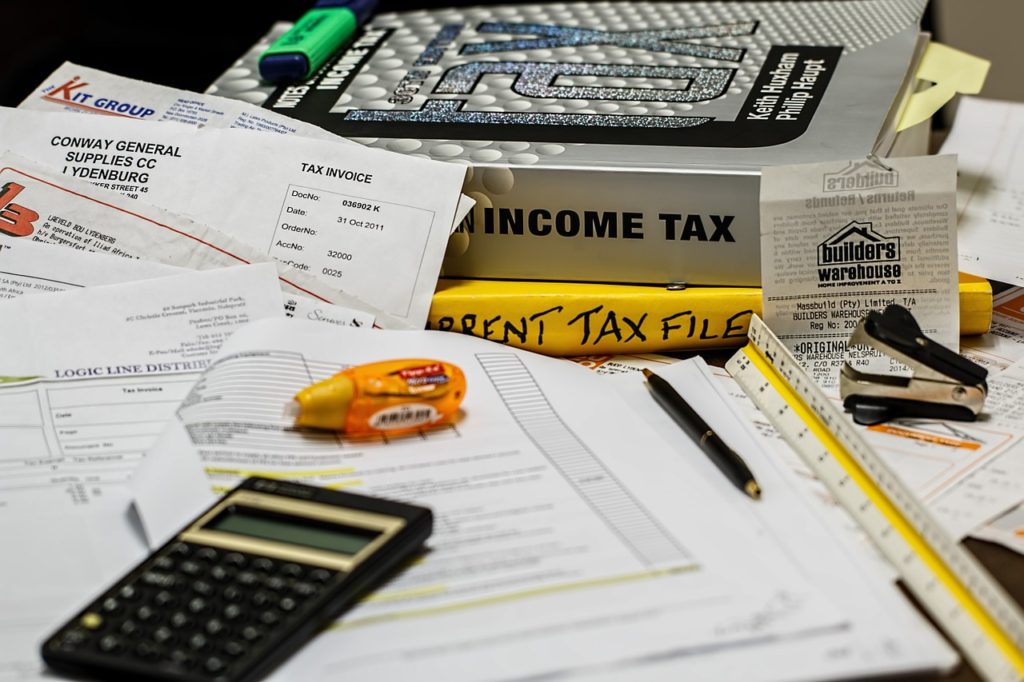
Only 60% of people will use a paid tax preparer to prepare and submit their returns. If you’re one of those people, then you should get organized as soon as possible so you can avoid an underpayment penalty. It’ll take some time to organize and prepare your information. Here are some tips you should keep in mind when it comes time to prepare for tax time.
Choose a Tax Preparer
The first thing you should do is choose the right tax preparer. The best way to find one is to ask your friends, family, neighbors, or colleagues for a referral. Make sure the one you choose has a Preparer Tax Identification Number (PTIN) that proves they are authorized to prepare federal income tax returns.
Use the IRS directory of preparers to help you find an authorized one based on their qualifications. Don’t forget to inquire about fees. Some will base their fees on the complexity of your tax return. Don’t use tax preparers who claim to take a percentage of your refund.
Schedule an Appointment
Once you find the right tax preparer, it’s time to make an appointment. You want to make that appointment as soon as possible. Most tax preparers are booked by the time April rolls around. It’s important to prepare your refunds so you can expect your money as soon as possible. If you can’t book an appointment before April 15, you won’t get advice on how to lower your 2018 tax bill, including health savings accounts and IRAs.
Organize Your Information Returns
At the end of January, you should have the information you need to prepare your taxes. Make sure that the information on these forms correlates with your records. The most common forms you may use include 1099 forms, W-2 forms, and Schedule K-1s. If you make mortgage payments, student loan payments, or tuition payments, then you’ll need various 1098s.
Organize Your Receipts
Now it’s time to organize all of your receipts from the previous year. Do you plan to make personal deductions or claiming one standard deduction? You can decide to itemize your personal deductions to get the biggest write-off. The only way to decide is to add up your itemized deductions and compare them the amount of your standard deduction.
You should get copies of your flexible spending accounts, investment-related expenses, medical expenses, property taxes, and job-related expenses. If you own a business, then you need to report your business income on a Schedule C. This means you’ll need accurate records of your accounting and bookkeeping. If you run a new business, then you will need a Good Accounting Startup firm who can handle everything you need. Accurate records can include receipts on business-related expenses, bank and credit cards statements, etc. The more organized you are, the easier it will be to prepare your taxes.
Organize Your Charitable Contributions
If you made any donations to charitiesand plan to itemize your deductions, then you’ll need copies of your records to claim a write-off. If you made charitable contributions of $250 or more in the past year, then you’ll need a written statement from the charity stating the amount of your gift and proof that you didn’t receive anything in return. If you don’t have a written statement, you should contact the charity as soon as possible. You need it before you file your tax return in April.
Gather Your Personal Information
You probably know your Social Security number by heart, but do you know the number for each of your dependents? Write down this information, along with their birth dates, rental properties, vacation homes, dates you moved, and information about the properties you purchased and sold, including the dates. You should also include the amount you paid and the amount you received on the final sale. You may even have to update information about your expenses in order to complete your return.
Get a Copy of Last Year’s Tax Return
You should also have a copy of last year’s tax returnin order to prepare your return. This will give the tax preparer an idea on how you prepared your taxes last year. This will also include a list of items that you don’t want to forget on this year’s return.
If you received payors of interest and dividends last year, then you should find this information on your 1099 forms. This won’t be the case if you closed any bank accounts or sold any stocks or investments. If you made a few small charitable gifts without a written statement, you can still deduct them as long as you have a canceled check, receipt, or another form of proof. Look at last year’s list of charities you donated to and notice if you made similar gifts this year.
